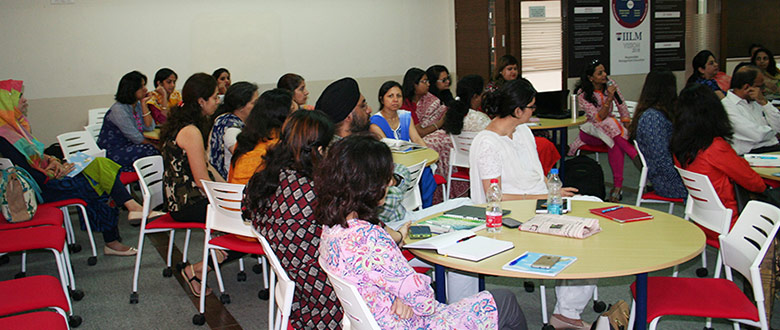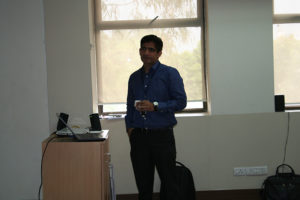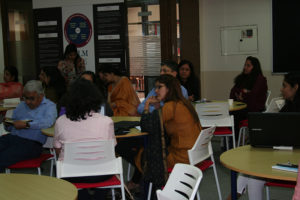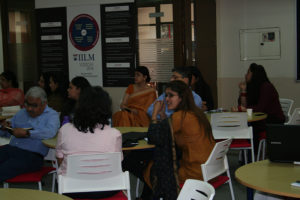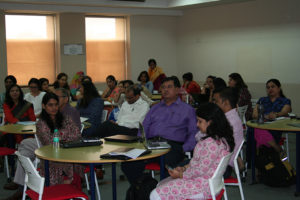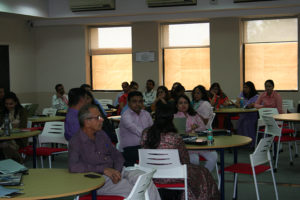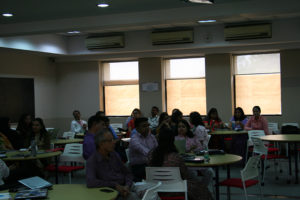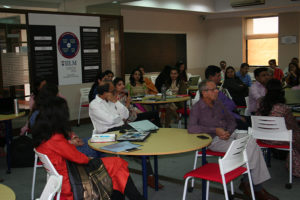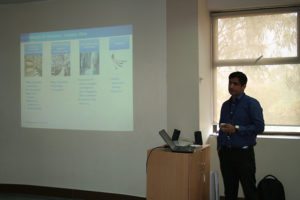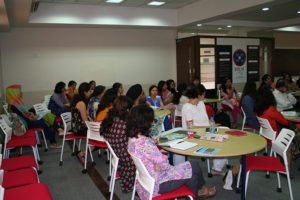| The first phase of the World Summit on the Information Society [WSIS] took place in Geneva, Switzerland from 10-12 December, 2003. The second phase will take place in Tunis, Tunisia, from 16 to18 November 2005. In Geneva, over 54 Heads of State, Prime Ministers, Presidents, Vice-Presidents and 83 ministers and vice-ministers from 176 countries, Executive Heads of United Nations agencies, industry leaders [private sector], NGOs, media representatives and civil society came together for the first multi-stakeholder global effort to share and shape the use of ICTs for a better world.The Summit adopted a Declaration of Principles which puts forward the shared elements among members of the international community about a common vision of an information society’s[1]values. It also adopted a Plan of Action which sets forth a road map to build on that vision and to bring the benefits of Information and communication technologies [ ICTs][2] to underserved economies. One among the few things for which there was consensus among the participants[3] in the Summit was with respect to the framework and strategy the international community should develop to ensure that the possible benefits of ICTs for development are maximized while the possible obstacles and barriers are minimized. With respect to the other two major themes discussed at the summit, namely, access and applications, very little of concrete and immediate relevance was achieved at the end of the first phase of the WSIS. All the intensity of debate and hard talk on internet management and governance during the pre-summit phase was diluted with the decision at the Summit to set up an UN working group on internet governance which will report to the second stage of the summit in Tunis, the decision only facilitating the stalling of the issue temporarily. Regarding the question of bridging the so called ‘digital divide’ by increasing access and applying ICTs for redressing the problems of the poor countries, it was agreed upon that for achieving the above, building up the infrastructure base in these countries from the primary level is essential . However, the consensus ended here. How this process is going to be funded and what role the developed countries should play in this respect remained a topic of controversy and discordance.
Few people have ever died because they did not have access to the Internet or could not make a telephone call. Among the necessities of life, ICTs come well down the scale. But it is much easier to deliver the real necessities of life-such as clean water, nourishing food, shelter, education, healthcare, and employment-with good access to information and communications. The UN Millennium Declaration[4] contains commitments to halve, by the year 2015, the proportion of the world’s population living on less than one US dollar per day, suffering from hunger or having no access to drinking water. It also contains commitments on achieving universal primary education for both boys and girls, reducing maternal and child mortality, improving healthcare and achieving significant improvements in the life of slum dwellers. ICTs can help in achieving these goals.
At the closing ceremony of the Summit, Yoshio Utsumi, Secretary-General of the International Telecommunication Union [ITU][5] and Summit cautioned that the Summit was only the start of a long and complex process. “Telephones will not feed the poor, and computers will not replace textbooks. But ICTs can be used effectively as part of the toolbox for addressing global problems….” he said[6] . The true test of an engaged, empowered and egalitarian information society, he added, would be seeing the fruits of today’s powerful knowledge based tools in the most impoverished economies. . The participants in the closing ceremony also stressed why it is pertinent to have a new commitment in areas like internet governance, access, investment, security, the development of applications, intellectual property rights and privacy to work together if we are to realize the benefits of the information society. A genuine and objective assessment of the Summit can be done by examining to what extent the above issues were addressed to in the summit and a consensus evolved with respect to tackling them.
The issue of internet governance was one of the most important and extensively discussed topics in the pre-summit phase, largely because of its multi-dimensional impacts in the global context. However, with agreement to set up an UN working group on internet governance – technical management of the internet and public policy concerns such as unsolicited advertising [spam], privacy, cyber crime and network security- the dispute has been defused, at least, temporarily[7] . Developing countries have proposed that the International Telecommunications Union should be given control of Internet governance issues, including anti-spam measures and distribution of Website domains. Many developing world countries believe that a new approach is needed as the Internet reaches maturity and as many poorer countries log on to the Internet. The move could represent a major setback in future for the International Corp for Assigned Names and Numbers (ICANN), a non-profit company which is currently seen as the most-recognisable Internet governance organisation. Because of its far-reaching implications in the international political, economic and cultural milieu, the issue has to be analysed systematically and independently, in detail.
Access to information, and thereby to the creation of knowledge, is considered a critical factor in the development process. On the one hand, this requires an adequate range of ICT networks and services. On the other hand, it implies the ability to use those tools to develop applications that benefit society (learning by doing). But both the tools and the ability to use them are unevenly distributed. Despite considerable progress in recent years, access to ICTs, notably the telephone, mobile phone, Internet and broadcast networks, remains unequally distributed[8]. There are, for example, more televisions in Brazil; more fixed line telephones in Italy; more mobile phones in Korea; and greater Internet connectivity in Luxembourg; than in the whole continent of Africa. Yet the population of Africa, and the needs of its people, greatly exceeds those of these other countries. In recent years, these disparities have come to be known as the “digital divide”. The Digital Solidarity Agenda put forward by the Draft Plan of Action attempts to bridge this divide by putting in place the conditions for mobilizing human, financial and technological resources for inclusion of all men and women in the emerging Information Society. The plan of action suggests that Developed countries should make concrete efforts to fulfil their international commitments to financing development including the Monterrey Consensus, in which developed countries that have not done so are urged to make concrete efforts towards the target of 0.7 per cent of GNP as ODA to developing countries and 0.15 to 0.20 per cent of GNP of developed countries to least developed countries. However many participants, especially from Africa were quite sceptical about the financing aspect of this process. African countries led by Senegal wanted a Digital Solidarity Fund to help governments, companies and nonprofit organizations narrow the so called digital divide. The U.S. and other western countries rejected this funding proposal insisting that the existing mechanisms are adequate, requiring at most unspecified adjustments. This seems quite ironical in the light of the fact that the WSIS was able to pledge only a trickle of financial support compared with the $6.3 billion (U.S.) one organizer estimated it would take to truly bring phones and internet to all corners of the world. However, it was finally resolved to undertake a review of existing ICT funding mechanisms and also study the feasibility of an international voluntary Digital Solidarity Fund, which would be reviewed in the Tunis Summit.
Another concern which was voiced by civil society groups[9] and some participants from African countries [before and after the Summit] was that the Summit was steamrollered by western and MNC interests’, as clearly evidenced by the dominance of MNCs like Micro Soft, Hewlett- Packard, Cisco, World Space etc. in technological collaborations formed at the Summit. especially with respect to developing the internet. Ralf Bendrath of Germany’s Heinrich-Böll Foundation warned that “To an extent, industry is naturally important, to build infrastructure and operate it. But we are against an information society that’s organized as a purely profit-oriented information society”[10] .
Civil society groups also came out with an alternative declaration claiming that their voices and the general interests collectively expressed by them are not adequately reflected in the Summit documents. Their Declaration titled “Shaping Information Societies for Human Needs” is centered around four core principles : Social Justice and People-Centred Sustainable Development; Centrality of Human Rights; Culture, Knowledge and Public Domain; and Enabling Environment.
Inspite of all the focus and big talk on the role national governments[11] have to play in the ICT diffusion process, the Summit was attended by a relatively much smaller number of government representatives than was initially expected. Of the 176 governments represented at the Summit 80 heads of government were initially expected to attend, some 60 confirmed their participation and finally was attended by 40 As Claire Flus, who works on providing access and local content to Brazil’s urban slums summed it up, ” The people we have seen are mainly from NGOs. The governments, I can’t really see them. I don’t find it obvious at all they are supporting this”[12].
Press freedom has been another controversial issue at the summit, with developing nations and European states clashing over the wording of a general declaration on the role of the media. The growing reach of the Internet as a news medium has once again thrown the spotlight on press freedom. But there was anger that many governments such as those of Zimbabwe, who are accused of clamping down on the media and restricting access to the Internet, are participating in the summit. As Timothy Balding, director general of the Paris-based World Association of Newspapers, said, “Many of the principal barriers and obstacles to development of the Internet as a platform for free expression have been erected by the very governments who are in attendance”. It is quite ironical to note that closely on heels with the Summit , a new U.S. federal law is coming into vogue from January, 1, 2004, making it legal to send bulk e-mail (60% of which is today spam). Anti-spam activists suggest that this would open the floodgates of spam[13] !!
A clear concern of alarm and caution also was voiced at the Summit, especially by Latin American and African nations regarding the need not just to preserve existing cultures, but also protect new cultures and forms of expression being created by the internet. One of the positive outcomes of the Summit was the consensus to preserve and support cultural diversity, though the question of how this could be achieved in today’s world still characterized by a sharp digital divide was largely skipped ,foster local content development an knowledge-sharing , and enable the use of all world languages on the internet.
Inspite of the differences of opinion in many areas the Summit ended on a general note of optimism that it was largely successful in placing the importance of ICTs in fostering development and bridging the digital divide on the world agenda. With long term commitment on the part of governments, private sector and civil society to mobilize resources and investment most of the envisaged targets can be achieved.
December 23, 2003.
[1] Ever since the 1980s, ‘information society’ has been one of the key terms used to describe the modern world. It has been employed variously as a social, cultural, economical and technical concept, and is typically seen as the natural development of the European liberal tradition, or of American technological modernity.
[2] Information and communication technologies are seen by various different bodies of the international community as being, inter alia:
– a bridge between developed and developing countries [DOI and DOT Force]
– a tool for economic and social development [WTDC 1994, Seoul Declaration, ADF 02]
– an engine for growth [The Missing Link Report, 1984];
– the central pillar for the construction of a global knowledge-based economy and society
[Florianopolis Declaration];
– An opportunity for countries to free themselves from the tyranny of geography [ESCAP 2000].
African Development Forum III, “Consensus Statement and the Way Ahead”, 3-8 March 2002,
Addis Abeba. http://www.uneca.org/adfiii/consensus.htm
[3] Participation at the WSIS was broadly from four categories of stakeholders, namely, governments, private sector, civil society, and the UN family.
[4] The reference here is to the UN Millennium Declaration Development goals. A framework of 8 goals, 18 targets and 48 indicators to measure progress towards the Millennium Development goals was adopted by a consensus of experts from the United Nations Secretariat and IMF, OECD and the World Bank. ( Road Map towards the Implementation of the United Nations Millennium Declaration, A/56/326 [PDF, 450KB] The goals are eradicating extreme poverty and hunger, achieving universal primary education, promoting gender equality and empower women, reducing child mortality, improving maternal health, combating HIV/AIDS, malaria and other diseases, ensuring environmental sustainability and developing a global partnership for development. In addition, the global development agenda also includes the achievement of sustainable development and agreed development goals, as contained in the Johannesburg Declaration and Plan of Implementation and the Monterrey Consensus, and other outcomes of relevant United Nations Summits.
[5] The original idea for the Summit came from ITU Resolution 73 (Minneapolis, 1998) and was subsequently confirmed in ITU Council Resolutions 1158 and 1179. Subsequently the UN General Assembly Resolution 56/183 [21 December, 2001] endorsed the framework for the Summit adopted by the ITU. UN General Assembly Resolution, A/RES/56/183, is available at: http://www.un.org/documents/ga/res/56/a56r183.pdf
[6] http://www.itu.int/wsis/geneva/newsroom/press_releases/wsisclosing.html
[7] Geneva Summit aims to bridge digital divide, Financial Times, Dec, 9, 2003.
[8] WSIS document –Providing access to ICTs for all -available at www.wsis.org
[9] The UN uses the term for organizations that are distinct from the government or international agencies.
[10] ://www.dw-world.de © Deutsche Welle
[11] While the private sector may be the driving force behind the growth of the information society, since private initiative is market driven, which does not necessarily cater for the needs of the whole population, particularly in developing and least developed countries it is essential for governments to take the lead in promoting equitable participation of the whole population in the information society.
[12] http://www.theglobeandmail.com/servlet/story
[13] The Hindu, The Challenge of Spam, p.10, Dec.19, 2003. |


